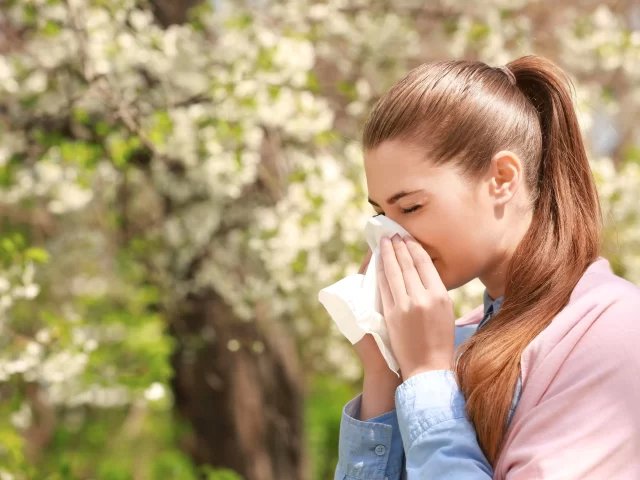Is Climate Change Making Your Allergies Worse?

Does it seem like your allergies have been getting worse year after year? If so, it may not be your imagination. The culprit may be climate change. As the planet warms, allergy seasons appear to be getting longer. Concentrations of allergens in the air, such as pollen, are also increasing. This all adds up to more sniffling, sneezing and wheezing for those who are long-time allergy sufferers. Even people who never experienced allergies in the past may notice they now have symptoms.
This increase in the duration and intensity of allergy seasons is not just a consequence of climate change that may happen sometime in the future. It’s a fact of life right now. No matter where you live or what the climate is like in your own backyard, chances are that you’re living among more allergy triggers than ever before.
One research study measured pollen trends in North America between 1990 to 2018. The study found that pollen seasons now start about 20 days earlier than they did in the 1990s. There’s also been more than a 20 percent increase in pollen concentrations during this time. Although the long-term role of climate change in relation to pollen patterns is not well understood, the effects it is having, and is expected to continue to have, on allergy sufferers cannot be ignored.
By increasing the amount of allergy triggers in the air, there is a higher likelihood that people will experience respiratory health issues due to seasonal allergies. This may be bothersome if you’re someone who muddles through the season with occasional sniffling or watery eyes. But if you have more severe allergy symptoms, or also have asthma, the increasing effects of allergens in the environment may be cause for concern.
There’s nothing you can do about the amount of pollen in the air or how long it lingers, but there are steps you can take to make allergy season more bearable. Here are a few tips for reducing your exposure to seasonal allergy triggers:
- Stay indoors on days when pollen counts are high (dry windy days are especially bad).
- Avoid being outside early in the morning, when pollen counts are highest.
- Skip outdoor chores, such as mowing the lawn or pulling weeds, that may increase your exposure to allergens. If you can’t get someone else to do it, wear a mask.
- Take off clothes you wear outside as soon as you come indoors.
- Shower before going to bed to remove any pollen that may be trapped in your hair.
- Brush or bathe pets that spend a lot of time outdoors, especially if they’re allowed on the couch or in your bed.
- Keep doors and windows closed.
- Don’t hang laundry outside or leave items of clothing outdoors.
- Use HEPA filters on your HVAC system and vacuum, if possible.
- Begin taking allergy medications before the height of allergy season.
- For some people, getting allergy shots provides lasting relief from allergens.
If your allergy symptoms are severe, have been getting worse or trigger asthma attacks or other respiratory issues, see a doctor for additional prevention and treatment options.
Copyright 2022-2023 © Baldwin
Publishing, Inc..
Health eCooks™ is a designated
trademark of Baldwin Publishing, Inc. Any duplication or distribution of the information contained herein without
the express approval of Baldwin Publishing, Inc. is strictly prohibited.